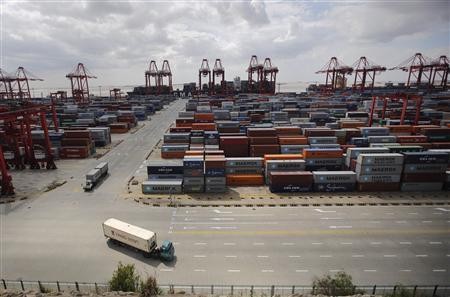The Shanghai Transport Commission in a press statement yesterday announced that ships visiting the Pudong New Area beginning next year will be allowed access to a new electricity supply source in order to dissuade them from having to burn high-polluting fuels while at berth or in dock.
Sea vessels will be provided with the power they need from generators that will be soon installed at the Waigaoqiao Port, according to the commission.
Shanghai, the world's largest container port, handles more than 50,000 ships a year from across China and the world.
Pollution from docked ships, according to official estimates, now accounts for 12 percent of Shanghai's total sulfur dioxide emissions, 11 percent of its nitrous oxide emissions and about 5 percent of all PM2.5 particles.
A U.S.-based NGO said that most ships at Chinese ports still use cheap bunker fuel, which is high in sulfur, while port vehicles and equipment are generally powered by diesel.
According to the city's transport commission, a total of 39 ships have already been withdrawn from service this year.
Aside from access to electricity that will soon be provided, the commission said that it will continue to institute other measures aimed at preventing old vessels from working on Shanghai's waterways. It added that owners can already get financial incentives from the government for retiring aging vessels.
Shanghai probably already has China's strictest air protection law, with maximum fines of 500,000 yuan ($81,244) that is automatically hiked on a daily basis until the offender finally stops polluting. Businesses found violating the law can also face suspension or closure of operation. The authorities can also confiscate equipment found to be causing pollution.
In Shanghai, once the air quality index exceeds 300, the city can order a boost in output of natural gas power plants in order to reduce emissions from coal-fired power plants, as well as order a temporary halt to all construction activities and production in industries related to chemicals, steel, oil refinery and cement manufacturing.
In Beijing, the nation's capital, the air quality index must reach 500 before authorities can impose similar measures.



























